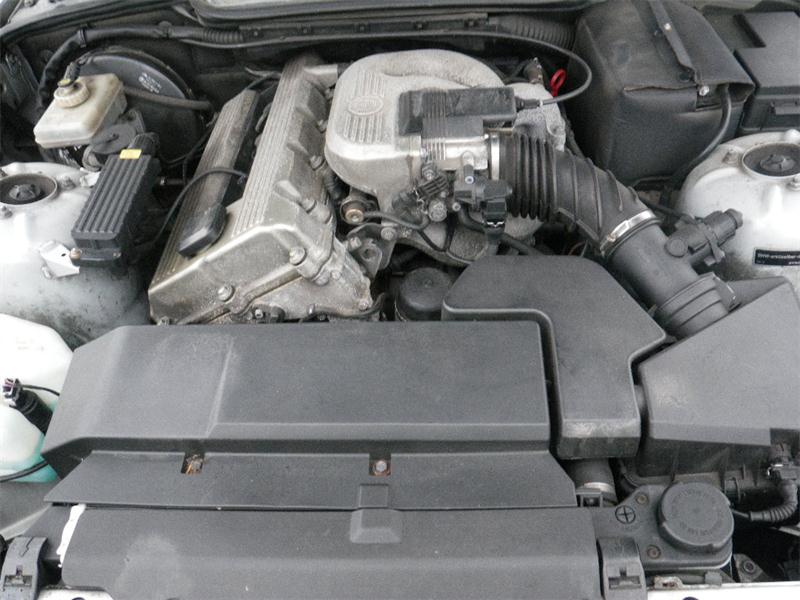BMW 318ti: A Traditional Compact with Timeless Appeal
BMW 318ti: A Traditional Compact with Timeless Appeal
Blog Article
Vital Considerations for Choosing the Ideal Engine for Your Requirements
In the realm of choosing the excellent engine to satisfy your requirements, a number of critical variables demand meticulous consideration to make sure ideal efficiency and efficiency. From the nuanced balance between power and performance to the often-overlooked facets of maintenance and service demands, each facet plays a pivotal role in identifying the most appropriate engine for your particular demands.
Power and Efficiency
When reviewing engines for ideal efficiency, it is essential to focus on both power outcome and effectiveness. Power result measures the ability of an engine to create power, which straight impacts its efficiency. A high power result is vital for demanding tasks such as high-speed needs or sturdy applications. It ensures that the engine can manage the workload effectively and effectively. However, power alone is not sufficient; effectiveness plays a substantial function in determining the total performance of an engine. Performance describes exactly how well the engine transforms fuel into functional power. An extra reliable engine will certainly supply far better mileage, reduced exhausts, and minimized operating costs. Striking the ideal equilibrium in between power output and performance is vital to picking an engine that meets your certain demands. It is necessary to consider variables such as the planned usage of the engine, ecological influence, and lasting cost effects when making this decision. By carefully assessing both power and efficiency, you can pick an engine that provides optimal performance and meets your requirements efficiently.
Gas Effectiveness and Economic Situation
Gas performance refers to the engine's capability to transform fuel into power with marginal waste, directly impacting operating expenses and environmental sustainability. Engines with higher gas effectiveness not only lower fuel expenses however additionally reduce carbon exhausts, contributing to a greener operation.

Compatibility and Application
Taking into consideration the fuel performance and economy of an engine, the following vital aspect to address is its compatibility and application within certain functional contexts. Compatibility refers to how well the engine integrates with the general system or devices it powers.
Various engines are created for specific functions, whether it be industrial machinery, marine vessels, cars, or power generators. Understanding the desired application allows for the choice of an engine that can supply the required power output, torque, and functional characteristics.
Upkeep and Solution Needs
Maintenance and solution requirements play a vital role in making sure the longevity and optimum performance of an engine. Regular upkeep is necessary to protect against breakdowns, extend the lifespan of the engine, and preserve its effectiveness. When picking an engine, it is vital to think about the producer's advised maintenance routine and the schedule of solution facilities or certified technicians.
Elements such as the frequency of oil modifications, filter replacements, and general assessments can dramatically impact the engine's performance. Some engines may require more frequent servicing based on their style and use, while others may have longer intervals in between upkeep checks. It is vital to comply with these solution demands to prevent expensive repair services and unforeseen downtime.

Expense and Budget Plan Considerations
When picking an engine for a specific application,Budget restrictions frequently play a substantial function in the decision-making process. When thinking about the cost and spending plan implications of picking an engine, it is important to examine not only the first purchase cost but likewise the long-term costs associated with upkeep, fuel intake, and potential upgrades or repair services. It is essential to strike an equilibrium between the in advance price of the engine and its general lifecycle costs to make sure that the chosen engine stays monetarily sustainable throughout its operational life-span.
Aspects such as fuel toughness, effectiveness, and reliability can straight affect the total price of possession of an engine. While a much more expensive engine might have higher in advance prices, it might potentially result in lower maintenance and fuel expenditures over time, therefore providing far better value in published here the lengthy run.
Final Thought

Fuel efficiency refers to the engine's capability to convert gas right into power with marginal waste, directly influencing operating expenses and environmental sustainability.Factors influencing fuel effectiveness consist of engine design, burning efficiency, and general efficiency optimization. Additionally, choosing the proper gas kind and grade as suggested by the engine supplier can further enhance effectiveness and extend engine life-span.
Engines with excellent serviceability features and easily available components can lower upkeep prices and minimize the useful content time the engine is out of operation - bmw 318ti. It is vital to strike an equilibrium in between the upfront expense of the engine and its total lifecycle prices to ensure that the selected engine stays economically lasting throughout its operational life expectancy
Report this page